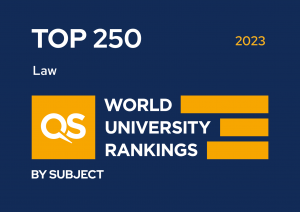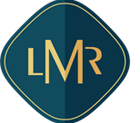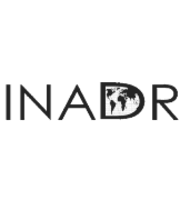Information leaflet can be found here.
STUDY PROGRAMME PLAN
|
Course units |
ECTS credits |
|
1st YEAR |
60 |
|
1 SEMESTER |
30 |
|
Compulsory course units |
30 |
|
Mediation Theory and Practice |
6 |
|
Negotiation in Legal Disputes |
6 |
|
Restorative Justice |
6 |
|
Alternative Dispute Resolution |
6 |
|
Conflict Management |
6 |
|
2 SEMESTER |
30 |
|
Compulsory course units |
24 |
|
Family Mediation |
6 |
|
Peculiarities of International Dispute Resolution |
6 |
|
Parties’ Evaluation and Characterization in Mediation |
6 |
|
Final Examination |
6 |
|
Alternatively elective course units 1 |
6 |
|
Business Mediation |
6 |
|
Intercultural Communication |
6 |
General competences and learning outcomes
- Personal and Social abilities
- Is able to apply optimal methods of counseling individuals to encourage and enable the analysis of conflicts, interpret, solve problems, think critically, monitor, evaluate and analyze facts, and draw conclusions that enable peaceful resolution of disputes;
- Is able to provide high-quality independent dispute resolution expert services and, using the knowledge of alternative dispute resolution, independently start, develop, manage legal counseling and dispute resolution business, generate new ideas in a multicultural environment, adopt socially responsible and ethical decisions.
Subject specific competences and learning outcomes
- Knowledge and its application
- Is able to understand the methods of dispute resolution and their applicability, as a result of it – is able to advise the parties to the dispute regarding the choice of the most appropriate way of resolution for the particular dispute and professionally conduct the mediation procedure and / or properly represent their clients involved in the mediation.
- Research skills
- Is able to analyze complex phenomena of intercultural social life – private international disputes, their legal environment, and draw conclusions necessary for their decision by the most appropriate means, taking into account the peculiarities of the particular dispute and its participants, also norms of private international law.
- Special abilities
- Is able to provide professional mediation services on a stand-alone basis or in a team, and to properly prepare the documents needed to initiate, execute and complete this procedure;
- Is able to organize and carry out the mediation process using modern information technologies.
Full-Time Studies (in English)
The program follows a modular structure, with students typically studying one subject at a time. For international students who are in the process of obtaining a temporary residence permit in Lithuania and cannot travel to Lithuania, the first semester will be held remotely (in a hybrid format).
Classes are held remotely one to three times a week, on weekdays in the evening from 4:10 PM to 7:40 PM. There may also be classes on Saturdays from 9:00 AM to 2:30 PM. All classes follow a fixed schedule provided to students in advance for the semester.
Once per semester, there is a mandatory two-week intensive practical session held on campus.
Students have access to an archive of all lecture recordings.
In exceptional cases, students who are unable to attend the intensive practical sessions in person due to valid reasons, and who notify the program director and instructors in advance, may participate remotely by observing the sessions online.
- Choose a study programme
- Fill in the application form at apply.mruni.eu
- Pay the non-refundable application fee (for non-EU citizens – 100 euros, for EU citizens, MRU Alumni, and Ukrainians – €50
- Receive your application evaluation results
- Confirm your acceptance by paying the first-year tuition fee and 50 euros registration fee (non-refundable)
- Sign the study contract
- Start Temporary Residence Permit application procedure
- Register to studies
Required documents:
- Bachelor degree in Law or equivalent first university degree diploma in Law (3-year study duration minimum). Applicants from other fields of study can also apply with additional conditions*
- Academic Transcripts of each study year
- Document proving English language level
- Motivational letter (please note that the authenticity of the motivation letter will be verified using specialized software, so it should be written without AI assistance)
- Passport copy
*Applicants from other fields of study can apply for the Mediation LL.M. program if they have at least 3 years of relevant work experience and have completed the LL.M. Preparatory Studies at Mykolas Romeris University. More information about the LL.M. Preparatory Studies can be found here.
Additional educational documents might be required depending on the country of residence.
Provided documents must be in color, have no cut corners (high quality scan).
Notes:
- The minimum 60% of maximum possible GPA is required in order to be considered for admission.
- By submitting the documents applicant agrees for one’s information to be shared with other institutions that the University might refer to while processing the academic verification.
- Applicants might be asked to participate in additional knowledge evaluation.
Required level – B2
Assessments of English language proficiency certificates equivalent to level B2:
- TOEFL IBT 72-94
- IELTS 5.5-6.5
- PTE score 59-75
- DUOLINGO 100-125
If you do not have a certificate proving your English language proficiency level, you can take the University Online English language level test. You will be able to choose this option while filling in the application. The test is free of charge.
Certificate is not required if your native language is English or if your previous studies were conducted fully in English language.
- If the original educational documents/transcripts are in English, Lithuanian or Russian with an apostille (if required) on the scanned original, no translation needed.
- If original educational documents/transcripts are not in English, Lithuanian or Russian languages, then they have to be supplemented with an official translation.
- The official translation has to be confirmed with the sworn translator’s signature or official notarization.
- Accepted students shall present their original educational documents/transcripts to the International Office upon arrival to begin their studies.
Country Specific Requirements can be found here.
Recognition of Foreign Qualifications
- The evaluation and recognition of prior qualifications is a part of Mykolas Romeris University (MRU) admissions process.
- By submitting the online application you confirm that the documents are legitimate and that MRU can verify the authenticity of the documents by contacting its issuing authority and national ENIC/NARIC centre.
- Documents uploaded must be in good condition and in full colour. Documents issued in languages other than English, Russian, or Lithuanian must be accompanied with an official translation into English or Lithuanian.
- Before you apply make sure that you have a complete documentation package and that your qualifications are giving access to higher education according to the study programme level you are applying for at the MRU.
Recognition Criteria
- The purpose of an assessment is to compare a foreign qualification with a similar level qualification awarded in Lithuania according to quality, profile, content, workloads and learning outcomes.
- Your qualification will be assessed according to specific requirements for the programme you are applying for and whether your academic results are sufficient for studies at the MRU.
Right to Appeal
Recognition decisions can be appealed against to the Academic Recognition of Foreign Qualifications Concerning Higher Education Appeal Committee under the Lithuanian Ministry of Education and Science.
All appeals with supporting documents must be submitted to:
Centre for Quality Assessment in Higher Education
Ph.: +37052104778
Email: recognition@skvc.lt
Address: SKVC, A. Goštauto st. 12, LT-01108, Vilnius, Lithuania
The procedure of evaluation and recognition of academic qualifications
Application fee (non-refundable):
- for Non-EU citizens – €100
- for EU citizens, MRU Alumni, and Ukrainians – €50
Registration fee (non-refundable):
- €50
Tuition fee (EU/Non-EU citizens) per 1 academic year: €3454 per one academic year (2025-2026).
Fees applied for Ukraine citizens.
Payment information will be provided in the invoices issued in your online application form.
Student continues to pay the same tuition fee which was implied at the time of the admission.
E-mail: study@mruni.eu
Phone: +370 5 271 4700
WhatsApp: +370 6 564 6682
Office: I-122




